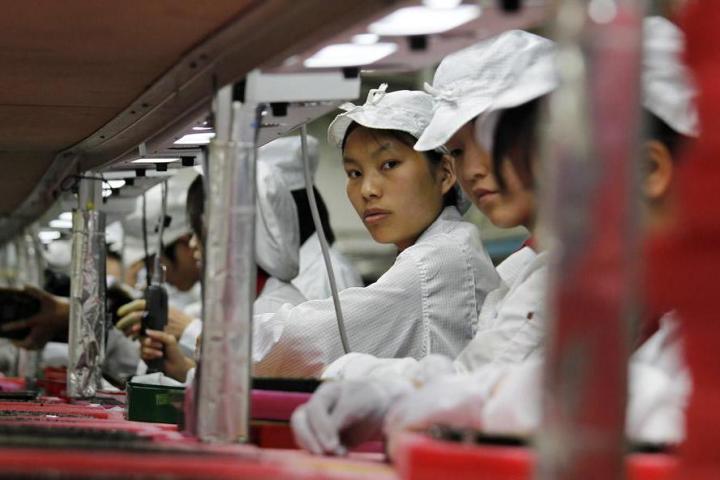
Exposure to the chemicals – benzene, a cleaning agent, and n-hexane, a solvent – has been linked to illnesses such as leukemia and can also cause nerve damage. It’s long been used by a number of tech firms in the manufacturing process of their various products
As consumers show an increasing interest in the origin of their products and how they’re made, Apple, like many of its competitors in the tech industry, has taken steps in recent years to press for improved conditions for workers at factories where its products are assembled, many of them in China.
Related: Apple to phase out use of conflict minerals
According to an AP report Wednesday, Apple recently investigated 22 factories with 500,000 workers and found no traces of the two chemicals at 18 of them, while use of the chemical at the remaining four was deemed to be within safety limits. Despite its findings, the company has decided to instruct its suppliers to refrain from using the chemicals in the future, and ordered checks on other substances to make sure they don’t contain benzene or n-hexane.
Take note, though, as Apple will still allow the chemicals to be used in the early production stages of its tech gear, though the AP reports the company is to reduce the amount used.
“This is doing everything we can think of to do to crack down on chemical exposures and to be responsive to concerns,” Lisa Jackson, Apple’s VP of environmental initiatives, told the AP, adding, “We think it’s really important that we show some leadership and really look toward the future by trying to use greener chemistries.”
Elizabeth O’Connell of activist group Green America described the move as “a good first step.”
Wednesday’s announcement to ban the chemicals comes five months after a petition was launched by China Labor Watch and Green America demanding Apple stop using them, and four years after the use of at least one of the chemicals, n-hexane, reportedly led to the hospitalization of 62 workers in China. The incident occurred at Lianjian Technologies, a subsidiary of Wintek that makes touchscreens used in Apple’s iDevices.
Apple noted the incident in its 2011 Supplier Responsibility Progress Report and said it had ordered the supplier to stop using the chemical, adding that it would monitor the health of the factory’s workers. A NY Times report at the time said employees had heard nothing from Apple, although the iPhone maker said in its progress report that, in accordance with Chinese law, Wintek had paid affected workers’ medical bills and lost wages.
We’ve reached out to Apple to discover why it’s taken so long to ban the use of benzene and n-hexane in the final stages of production of its tech products – and find out why it can’t stop using them in all phases of production – and will update if we hear back.
Editors' Recommendations
- How to find your phone number on iPhone or Android
- iPhone SE deals: Refurbished 2nd and 3rd Gen iPhones
- Apple is about to do the unthinkable to its iPads
- Best refurbished iPhone deals: Get an iPhone 14 for $513
- We finally know when Apple will announce its 2024 iPads


